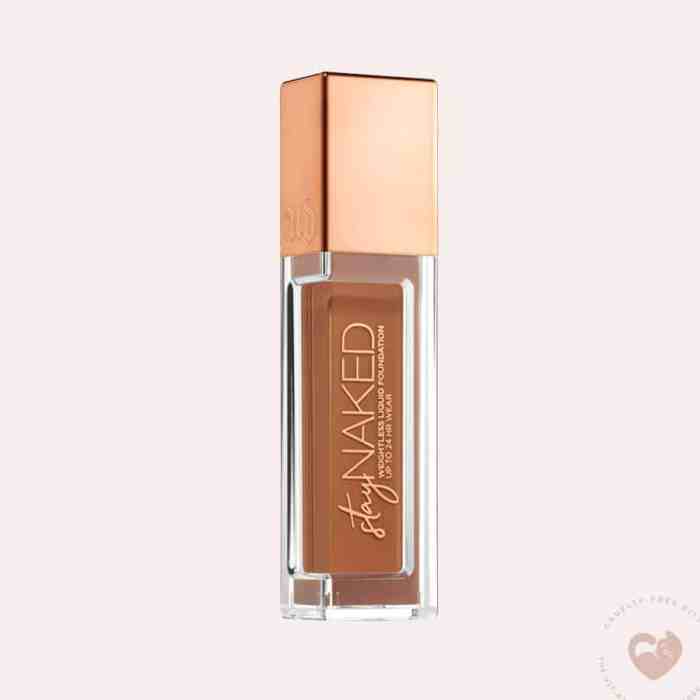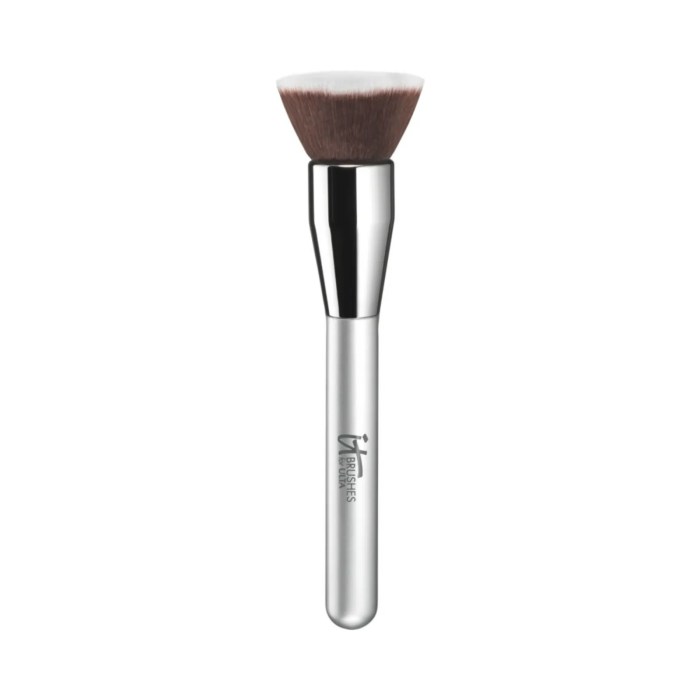
Cruelty-free makeup is more than just a trend; it represents an ethical shift in the beauty industry, prioritizing the well-being of animals and consumers alike. As more individuals become conscious of their purchasing decisions, understanding what cruelty-free really means is essential for making informed choices.
This guide explores the significance of cruelty-free makeup, highlights popular brands committed to ethical practices, and distinguishes between cruelty-free and vegan products. The impact of these products on health, both physically and mentally, as well as their alignment with alternative treatment philosophies, underscores the growing importance of choosing compassion in beauty.
Cruelty-Free Makeup

Cruelty-free makeup refers to beauty products that are developed without any testing on animals at any stage of their production. This concept has gained significant traction in the beauty industry as consumers become more aware of animal welfare and the ethical implications of their purchases. The importance of cruelty-free makeup lies not only in the humane treatment of animals but also in promoting sustainable and ethical practices within the beauty sector.
Understanding Cruelty-Free Makeup
Cruelty-free makeup signifies a commitment to ensuring that no animals suffer or are harmed for the sake of beauty products. This practice aligns with a growing ethos among consumers who prioritize compassion and ethics in their buying habits. While cruelty-free products are an essential aspect of ethical consumerism, it’s important to clarify the distinction between cruelty-free and vegan makeup products.
- Popular Cruelty-Free Brands: Numerous brands have committed to cruelty-free practices, setting industry standards. Some well-known cruelty-free makeup brands include:
- Too Faced: Known for its fun and innovative products, Too Faced prides itself on being cruelty-free since its inception.
- Tarte Cosmetics: This brand emphasizes eco-friendly products and has a strong cruelty-free commitment.
- Urban Decay: A pioneer in the cruelty-free movement, Urban Decay actively campaigns against animal testing.
- e.l.f. Cosmetics: This affordable brand showcases a wide range of cruelty-free products without compromising on quality.
- Ethical Practices: Many of these brands engage in ethical sourcing of ingredients, sustainable packaging, and support animal rights organizations, reinforcing their commitment to cruelty-free principles.
“Cruelty-free does not only benefit animals; it reflects a broader commitment to ethics in the marketplace.”
Cruelty-Free vs. Vegan Makeup Products
While cruelty-free and vegan makeup terms are often used interchangeably, they represent different principles. Cruelty-free products ensure no animal testing occurs, whereas vegan products do not contain animal-derived ingredients.
- Cruelty-Free Products: These products are tested on humans but not on animals. They can still contain animal-derived ingredients, such as beeswax or lanolin.
- Vegan Products: Vegan makeup is both cruelty-free and devoid of any animal-derived components, appealing to consumers who wish to avoid animal exploitation entirely.
- Overlap: Some brands offer makeup lines that are both cruelty-free and vegan, catering to the ethical preferences of a broader audience.
The Impact of Cruelty-Free Makeup on Health
The choice to use cruelty-free makeup extends beyond ethical considerations, significantly impacting skin health and mental well-being. Many consumers are becoming increasingly aware of how the products they use affect not only animals but also their bodies and self-esteem. By opting for cruelty-free cosmetics, individuals can enjoy various benefits, offering a more holistic approach to beauty.Cruelty-free makeup often contains natural and organic ingredients, which are less likely to irritate the skin compared to conventional products filled with harsh chemicals.
Many conventional cosmetics include parabens, sulfates, and synthetic fragrances, which can trigger skin allergies or exacerbate conditions like eczema and psoriasis. In contrast, cruelty-free brands often prioritize gentle formulations that are beneficial for various skin types, enhancing hydration and nourishment without the unwanted side effects.
Health Risks Associated with Non-Cruelty-Free Cosmetics
Many conventional cosmetics can pose significant health risks due to their chemical compositions. Acknowledging these potential hazards is crucial for making informed choices regarding makeup products. The following points illustrate some common dangers linked with non-cruelty-free cosmetics:
- Presence of toxic ingredients: Many mainstream brands utilize harmful substances such as heavy metals, which can accumulate in the body over time, leading to serious health issues.
- Skin irritation and allergic reactions: The harsh chemicals often found in non-cruelty-free products can lead to adverse reactions, causing redness, rashes, or breakouts.
- Long-term skin damage: Regular use of products laden with synthetic ingredients may contribute to premature aging and other long-term skin concerns.
“Choosing cruelty-free makeup not only reflects a commitment to animal welfare but also prioritizes personal health and well-being.”
Promotion of Mental Well-Being and Confidence
Cruelty-free makeup plays a significant role in enhancing mental health and self-confidence. When consumers choose products that align with their ethical values, they often experience a sense of empowerment and satisfaction. Engaging with brands that prioritize cruelty-free practices fosters a community centered on kindness and sustainability.Moreover, the quality of ingredients in cruelty-free products can lead to improved skin health, which, in turn, boosts self-esteem.
When individuals feel good about their skin, it reflects positively on their overall confidence levels. Using makeup that is not only effective but also ethical contributes to a positive self-image and encourages a mindful approach to beauty.In conclusion, the impact of cruelty-free makeup on health encompasses both physical skin health and emotional well-being. By selecting cruelty-free products, consumers not only care for their skin but also support ethical practices that resonate with their values, ultimately enriching their beauty experience.
Cruelty-Free Makeup in the Context of Alternative Treatments
Cruelty-free makeup has gained popularity as consumers become more conscious of their choices, opting for products that not only enhance beauty but also align with ethical principles. This shift is strongly connected to the broader landscape of alternative health treatments and holistic wellness practices, where the focus is on natural, non-toxic, and compassionate options that promote overall well-being.Cruelty-free makeup aligns closely with alternative health treatments and holistic wellness practices, as both prioritize the use of natural ingredients and ethical sourcing.
Consumers who choose cruelty-free products often seek alternatives that are gentle on the skin and devoid of harmful chemicals. This connection between beauty and wellness is evident in the growing trend of using plant-based ingredients that nourish the skin while supporting ethical practices. For instance, products infused with essential oils or botanical extracts not only serve cosmetic purposes but also contribute to mental and emotional well-being.
Relationship Between Cruelty-Free Beauty Products and Consumer Choices in Health and Nutrition
The consumer’s choice to use cruelty-free beauty products often reflects a broader commitment to health and nutrition. Individuals who are mindful of their food choices are likely to apply the same scrutiny to personal care products. The overlap between these two domains highlights an increasing awareness of the impact that ingredients can have on health. The ingredients commonly found in cruelty-free products are not only free from animal testing but also tend to be safer for human use.
This safety is essential for those who may have sensitivities or allergies to synthetic chemicals. By understanding the relationship between what we put on our skin and our overall health, consumers can make informed decisions that enhance both their beauty routines and their general well-being.A comparative analysis of cruelty-free makeup ingredients versus traditional harmful ingredients reveals significant differences in safety and efficacy.
Below is a table that Artikels these contrasts clearly:
| Cruelty-Free Makeup Ingredients | Traditional Harmful Ingredients |
|---|---|
| Shea Butter | Parabens |
| Jojoba Oil | Synthetic Fragrances |
| Natural Clays | Phthalates |
| Plant-Based Dyes | Artificial Colorants |
| Aloe Vera | Formaldehyde |
Ensuring the products we choose are cruelty-free and made from safe ingredients is essential not only for personal health but also for supporting a more ethical and sustainable beauty industry. This alignment with holistic wellness complements the movement towards conscious living, where consumers are increasingly aware of the consequences of their purchases.
Conclusion

In conclusion, cruelty-free makeup not only enhances our beauty routines but also fosters a sense of responsibility towards our planet and its inhabitants. By opting for products that are ethically sourced and skin-friendly, consumers can indulge in beauty while championing health and well-being. Let’s continue to embrace these conscious choices, paving the way for a more compassionate future in cosmetics.
Helpful Answers
What does cruelty-free makeup mean?
Cruelty-free makeup refers to products that are not tested on animals at any stage of production.
Are all cruelty-free products vegan?
No, cruelty-free products may still contain animal-derived ingredients, while vegan products do not.
How can I identify cruelty-free makeup brands?
Look for certifications from organizations like Leaping Bunny or PETA, which verify cruelty-free practices.
Is cruelty-free makeup better for sensitive skin?
Often, cruelty-free products use fewer harsh chemicals, making them gentler options for sensitive skin.
Can I trust the claims of cruelty-free on packaging?
It’s best to check for official certifications to ensure authenticity rather than relying solely on labels.





